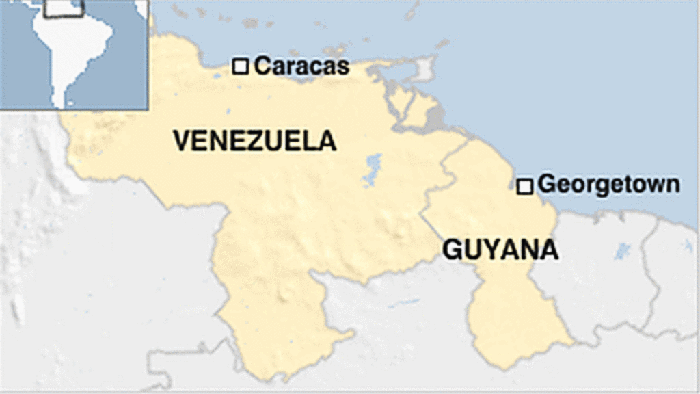Venezuelan President Nicolas Maduro met with his Guyanese counterpart David Granger on the sidelines of the UN General Assembly, along with UN Secretary-General Ban Ki-moon. The leaders have showed the willingness to solve the issue through diplomacy and dialogues.
"It was a very difficult and tense meeting, but we are able to begin a new path of dialogues," Maduro told the TV channel TeleSUR.
Maduro added that a commission appointed by the UN secretary-general will visit Caracas to make a comprehensive assessment about Venezuela`s claims to recover the sovereignty of the Essequibo.
"We`ll speak with the commission and show the historical documents of the just, moral and historical claim of Venezuela over the Essequibo territory," he announced.
The president also said that besides the return of Venezuelan ambassador Reina Arratia to Georgetown, the capital of Guyana, he has asked Foreign Minister Delcy Rodriguez to initiate discussions with her Guyanese counterpart.
Maduro added that he himself would also have regular communication with Granger until the two countries have a close relationship based on dialogues and diplomacy.
Earlier this year, Georgetown authorized U.S. oil giant Exxon Mobil to operate in the Essequibo region, which prompted an immediate response from Caracas who demanded stopping such actions.
Maduro recalled his country`s ambassador to Guyana in July and halted accreditation for Guyana`s ambassador to Venezuela in September.
The controversy centers on the lands west of the Essequibo River of Guyana, covering about two thirds of the small English-speaking nation after the U.S. company made an offshore oil discovery this year.
The dispute stems from an 1899 court ruling that required Venezuela to relinquish an undeveloped but resource-rich jungle territory called the Essequibo.
Caracas contends the ruling was invalid after a treaty was signed in 1966 with Guyana and its former colonial ruler, Britain.
The United Nations has mediated in the conflict and assigned a commission to try to find a solution but neither of the countries had agreed on the issue.
More about:















































